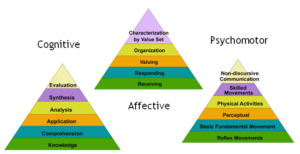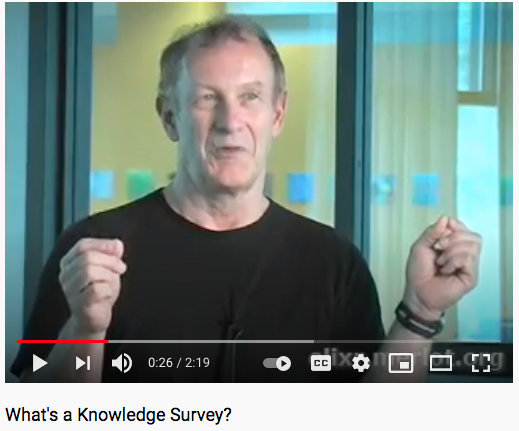by Ed Nuhfer, PhD, California State Universities (retired)
Roman Taraban launched such an important topic for our blog on July 20 with “Hate-Inspired Webforums, PTSD, and Metacognition” that it is surely worth extending his discussion further.
Roman noted that groups develop recognizable vocabularies (discourse) and manners of speaking for set purposes. The purpose of developed vocabulary and manner of speech of hate groups is to enlist support and then empower and activate those with dispositions toward bias and bigotry. Activation in hate groups includes intimidation, shaming, shunning, and physical violence. Affect is the ultimate origin of discourse because the desire to promote such discourse is an affective feeling. Like cognitive thinking and psychomotor activity, affect is essential to human life and function. However, affect can guide us to act in ways that are ineffective, toxic, or destructive.
Learning and education are the processes through which we support and advance civilization. The purpose of civilization may be to elevate effective, beneficial actions and to minimize deleterious ones. Through learning and education, we develop frameworks of reasoning and processes for developing beneficial proficiencies. Examples of a psychomotor framework would be a process through which one learns to hunt for food, play a musical instrument, or to produce a painting. Examples of cognitive frameworks would be the logic of language and the use of testing and verification as a way of knowing through which we understand the physical world. An example of an affective framework is ethics—the way of knowing through which we evaluate the nature of feelings that are directing (or attempting to direct), our choices and decisions through which we act.
It is relatively easy to assess when psychomotor efforts are effective and successful. It is more difficult to see how language presents a fallacious argument or when an accepted cognitive perception about the physical world constitutes a misconception. It is most difficult to determine whether an affective feeling is likely to direct us to actions that are beneficial and healthy or toxic and perverse. We observe our affective state through metacognition, which is a purposefully directed internal awareness. Metacognition has an ineffable quality. In contrast, physical action and cognitive reasoning are easier to assess through their immediate products.
The history of education seems marked by an initial focus on the development of effective psychomotor skills needed for survival, technology, and simple arts. Later educational efforts offered an emphasis on written language, literature, increasingly sophisticated arts, and science. We finally are arriving at a time in Western education when an acceptance is dawning that becoming educated should proceed beyond cognitive and psychomotor development to understanding ourselves and our affective traits. This pattern seems inevitable because it is recapitulated on a smaller scale in our development as individuals.
If we are lucky, we start life acquiring the skills needed for our survival and further development. If we are particularly fortunate, we progress to gaining valid knowledge, valuable skills, and capacity for understanding and appreciating the social and natural realms in which we live. Finally, if we are uncommonly privileged through fortune, we can develop wisdom that promotes our living in an expanded awareness of our reality and increased capacity for nurturing and caring well for our natural world and others around us.
Given the progression outlined above, we should expect that metacognition will be our students’ most challenging and least-developed capacity for learning and becoming educated. As educators, we should also expect struggle and resistance, both individually and collectively, against the legitimacy of affective development efforts and metacognition as essential to becoming educated. We have already seen such resistance to these advances.
In hindsight, it now appears that Benjamin Bloom and his team of educators who worked in the 1950s and 60s seemed decades ahead of their contemporaries by recognizing the indispensable importance of the affective domain to the process of becoming educated. The Bloom team’s contribution on affect took many years before its importance was realized. At the time Bloom published his taxonomy of the cognitive domain, he was producing a second volume on the taxonomy of the affective domain (and still later, the psychomotor domain), the established behavioral sciences were focused solely on cognition. These sciences ridiculed affect, dismissed metacognition (see Dunlosky and Metcalf, 2009) and treated both as nonsense that obstructed objective reasoning and cognitive thinking. Bloom’s first volume on the cognitive domain became the most-cited educational reference in history, but the second volume on the affective domain fell into such obscurity that few college professors even know that it existed. The academic realm so de-legitimatized affective feelings that researchers from the 1960s into the early 1990s were actually afraid to study or write about emotions (see Damasio, 1999).
William Perry’s 1960s landmark work (Perry, 1999) was contemporary with Bloom’s research. Perry presented his discovery of distinct stages of adult intellectual development that he derived from analysis of language patterns (discourse) that manifested during interviews that Perry held over several years with groups of students. This longitudinal study found that students changed their thinking and reasoning process during years of becoming educated. Moreover, the interviews revealed that the highest stages went beyond cognitive thinking by incorporating and regulating metacognitive awareness of one’s affective inclinations. This discovery of the nature of highest-level reasoning arrived with awkward timing, given the regard by scholars for affect and emotions. In Perry’s entire book, reference to “affect” occurs only once (in a brief footnote on page 49) and to “emotions” only once (on p. 140). “Feeling” / “feelings” appear thirty-nine times, but mostly in the quotations of statements made by students during interviews. Perry seemed unable to write openly about these aspects, so the three chapters on his three highest stages are conspicuously brief. Today, a close reading of these chapters indicates that he had probably also discovered the development of emotional intelligence in his interviews, but he seems to have understood the dangers that any emphasis on emotion might pose to his larger discovery.
Another landmark book (King and Kitchener, 1992) that followed Perry’s interview approach refused to venture even that far. These authors restricted their investigation of higher intellectual stages to purely cognitive reasoning. However, by 2004 (Journal of Adult Development, 2004) a synthesis revealed that many investigations and classification schemes that followed Perry all mapped to each other and were essentially describing the same stages.
Bloom’s Taxonomy of the Affective Domain seems to map even better onto the Perry stages than it does to Bloom’s Taxonomy of the Cognitive Domain, (see Nuhfer, 2008) indicating that building affective capacity is indeed a developmental process. Thus, well-designed higher education curricula can build it, providing instructors design the curricula to produce the highest levels of thinking.
As an added benefit, development of metacognitive awareness is probably the best way to curtail the influence of “hate groups,” whether these be minor cults or mainstream establishment organizations. People with metacognitive awareness can perceive when their affect is getting involved from external attempts to direct their abilities toward beneficent or maleficent ends. In part 2, we’ll consider how teaching any discipline presents an opportunity to push thinking to highest levels through using metacognitive awareness to reflect on ethics, respect, courage, and gratitude.
References
Damasio, A. (1999). The Feeling of What Happens: Body and Emotion in the Making of Consciousness. New York: Harcourt.
Dunlosky, J. and Metcalf, J. (2009). Metacognition. Thousand Oaks, CA: Sage.
Journal of Adult Development (2004). Special volume of nine papers on the Perry legacy of cognitive development. Journal of Adult Development (11, 2) 59-161 Germantown NY: Periodicals Service Co.
King, P. M., and Kitchener, K. S. (1994). Developing Reflective Judgment. San Francisco, CA: Jossey-Bass.
Nuhfer, E. B. (2008). The feeling of learning: Intellectual development and the affective domain: Educating in fractal patterns XXVI. National Teaching and Learning Forum, 18 (1) 7-11.
Perry, W. G. Jr. (1999). Forms of Ethical and Intellectual Development in the College Years. San Francisco, CA: Jossey-Bass (a reprint of the original 1968 work with minor updating).





